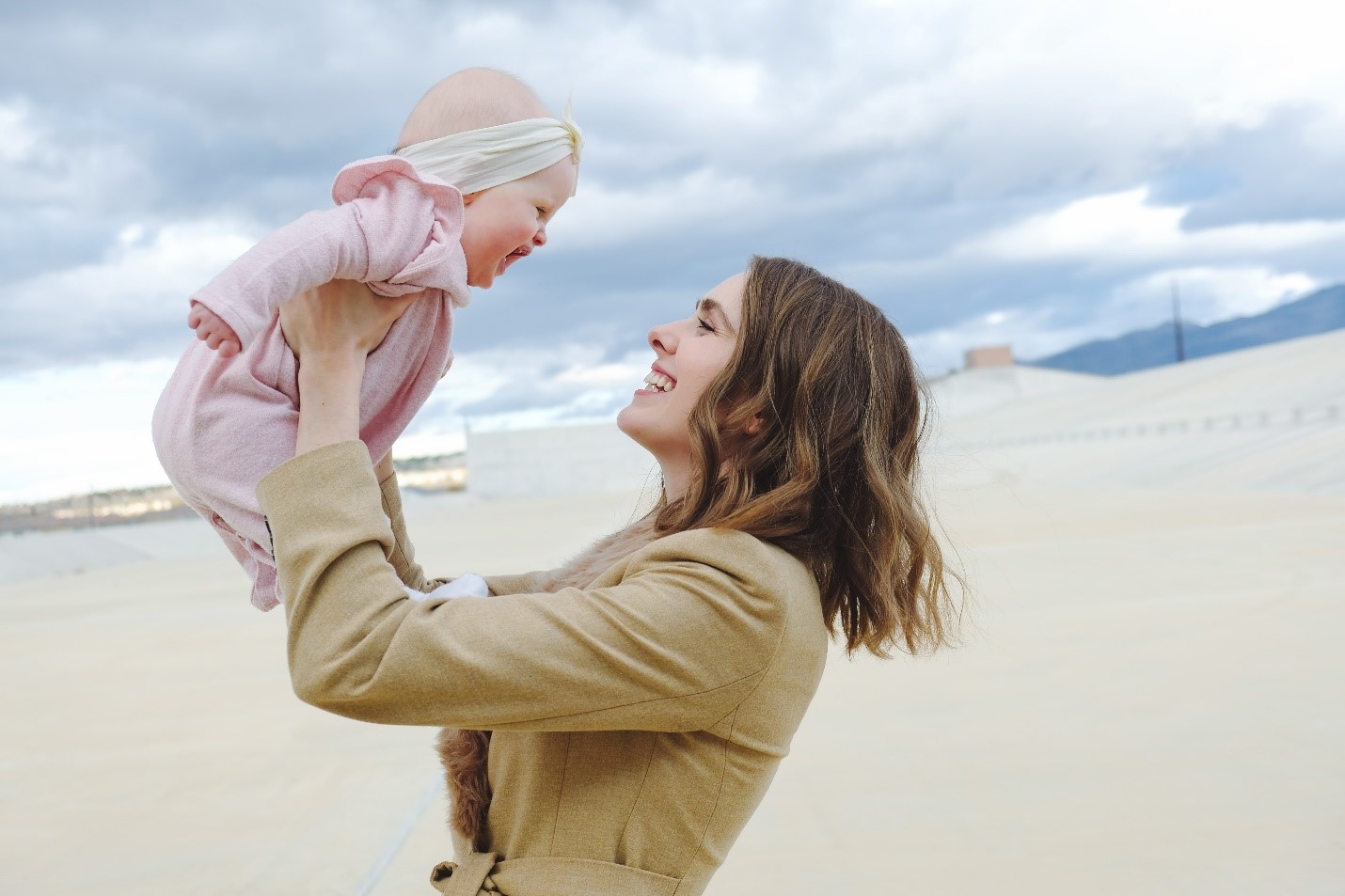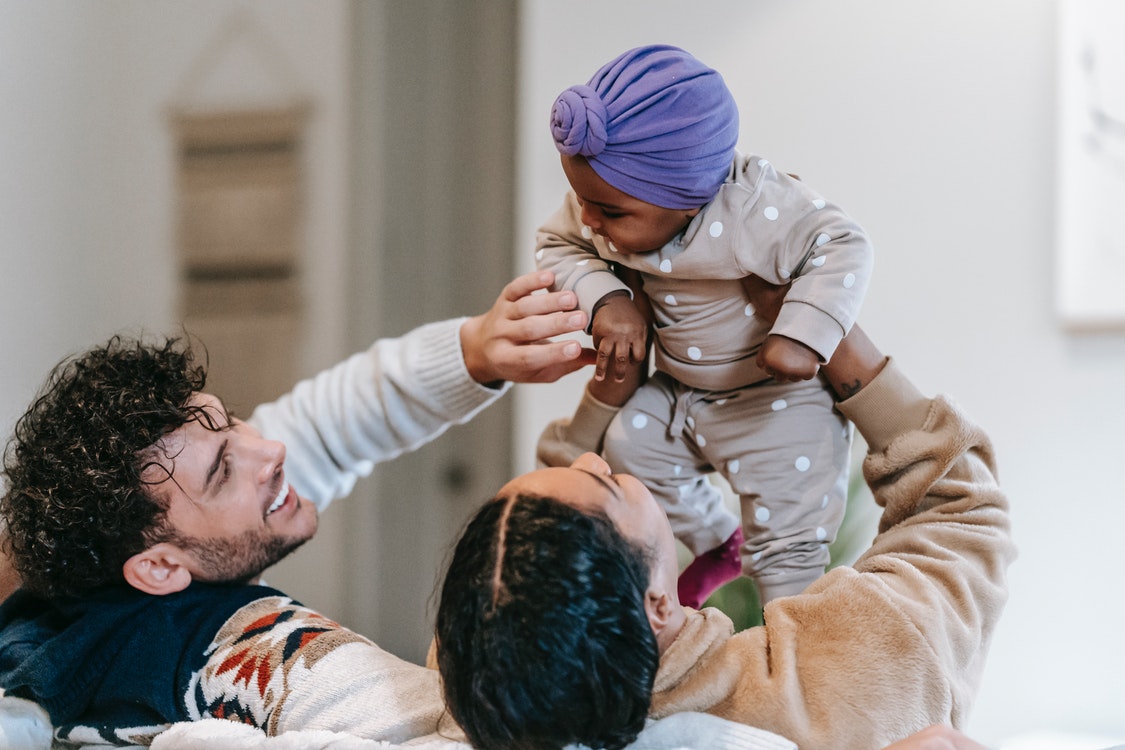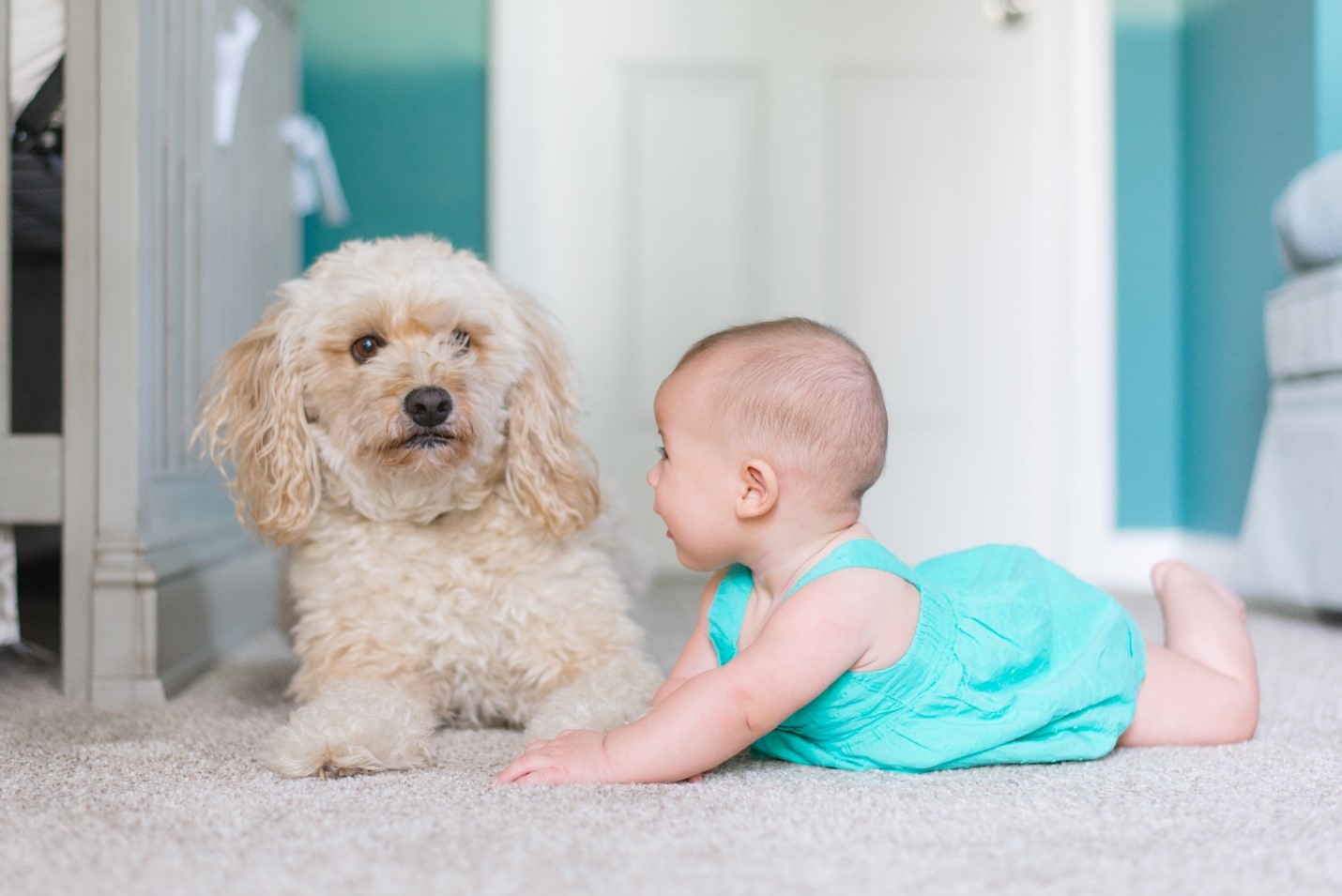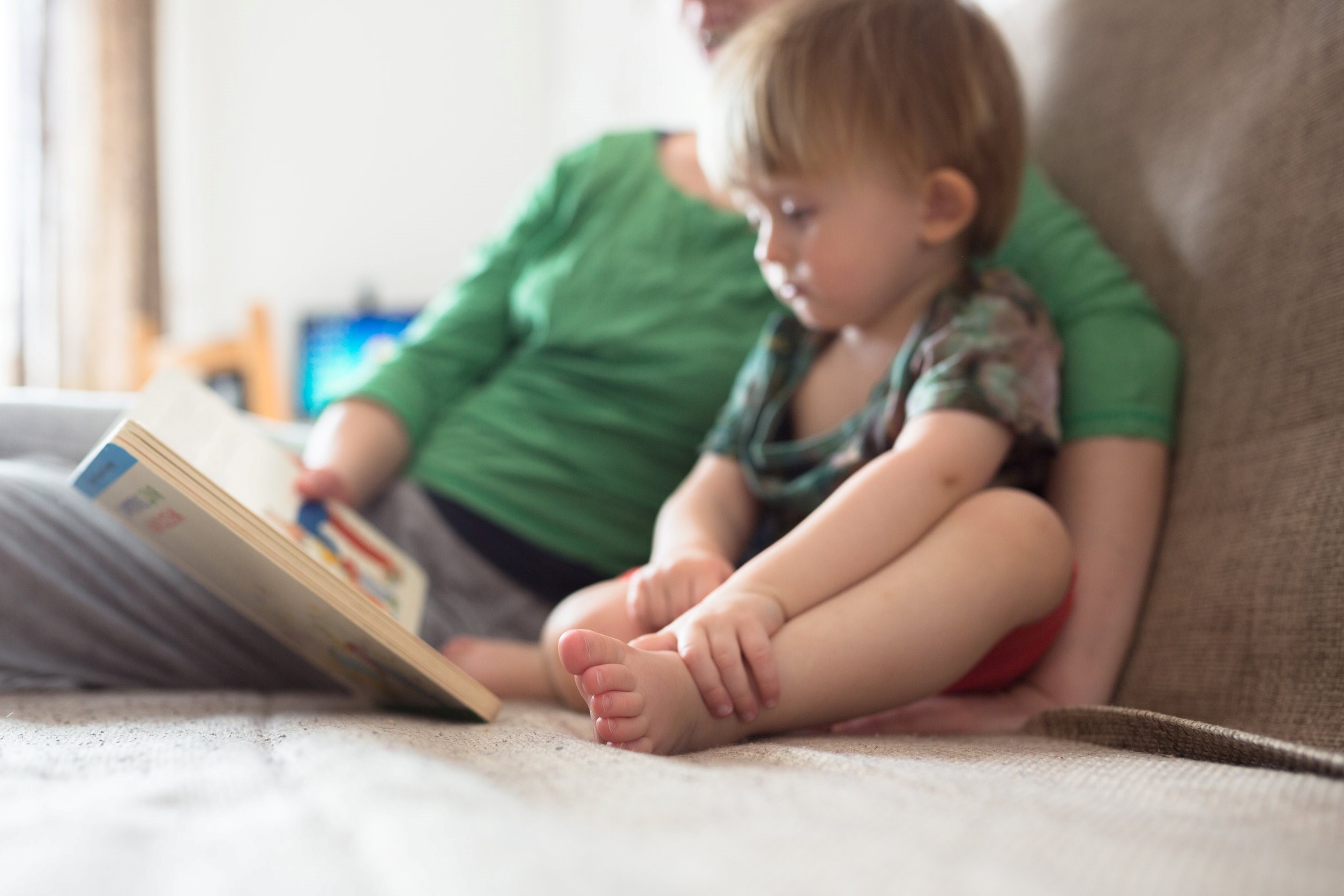The first word uttered by a child is one of the most exciting moments for parents. It’s kind of like hearing your baby speak, except they are only using one word. To make it even more exciting, there are certain first words that you can expect from your little bundle of joy!
The most common baby first words include variations for parents such as “mama,” “mommy,” “dada,” “daddy,” and “papa.” After those, you can expect a wide variety of words to follow such as “no,” “uh-oh,” “please,” “ball,” and more!
This article will discuss 30 common baby first words and their meanings so you can be sure to know what to say when your darling finally starts talking.
The Most Common Baby First Words to Expect

Here is an extensive list of common baby first words and their meanings:
- Mama – This is usually the first word, or one of the very first uttered by a child. They are very likely to call their mother by this name.
- Mommy – The female version of “Daddy,” this is another favorite first word used by young children when talking about their mother or any similar-looking female.
- Dada – This is the male version of Mama, and it’s equally common for young children to use these words when referring to either parent.
- Daddy – This is one of the most common first words, and it usually comes after they’ve seen you for a while or have been given to their father.
- Papa – This is another common first word that babies will learn, and it usually means the same thing as “daddy.”
- Uh-Oh – This is one of the first words that young children learn, and it’s usually used when they’ve done something wrong.
- Ball – After parents, there are many first words that will be related to everyday objects. This is one of the most common, and it’s usually a ball of some kind (although sometimes children also use this word for other round things.).
- Yes – This is one of the most common first words, and it’s usually followed by another word or phrase.
- Stop – Another important first word used to express displeasure at something not wanted (such as a parent putting them down) or to emphasize something (such as “no” or “uh-oh”).
- No – This is an important word, but it’s also a slightly negative one that can be used in place of “No.” You should teach your child the appropriate times to use this word, so they don’t accidentally start saying something inappropriate!
- Up – The opposite of down, babies will learn these words at a very young age. They can be used to express that something is not where it should be or as an expression of excitement about being picked up from the ground!

- Down – The opposite of up, this word will also be learned early on by babies and toddlers. It’s usually paired with “up” but can also mean other things, like the opposite of “stop” or that something is not where it should be.
- Doggy – This word will usually follow the naming of a specific animal, and your child might repeat this many times when they see their pet in person after calling them by name at home.
- Dog – This can be one of the first words, and it usually means any dog in general. Children will sometimes use this word when talking about other animals too (like a cat or even lion!)
- Puppy – This is another word that will usually be used when naming a specific type of animal, and it’s often paired with the words “dog” or “cat.”
- Cat – This is another common first word, and it’s usually used to describe any feline friend.
- Kitty – This is another common first word and it will usually come after the naming of a specific type of feline.
- Bye – It’s not unusual for babies to start saying their version of “goodbye” well before they learn how to actually wave bye-bye.
- Bye-bye – Another common first word, this means that your little one wants you to pick them up or move them somewhere else. It can also be used as an all-purpose goodbye.
- More – This is a common request from babies and toddlers, who might not yet know how to ask for more by using words like “please.” It can also be used as an expression of satisfaction when they’re done eating or playing!
- Please – Another important word that will usually come after the first set of words, this is how your baby will ask for things from you. It’s important to teach them the difference between “Please” and “Thank You.”
- Thank you – This is another common first word that babies learn very early on! It shows their gratitude after they’ve been given something or allowed to do something.
- All done – They might not be able to say this word exactly, but your child will let you know when something is finished (like a meal, bath time, and playtime!)
- All gone – This is an important word for babies because it refers to something being out of their reach! They might be too young to verbalize this specifically but will show you what they mean when there’s nothing left for them to eat or play with.
- Boat – Another common first word based on an everyday object. This is usually paired with “Bye-bye” to mean the child wants you to give them their toy boat!
- Car – Another common first word based on everyday objects, this will usually refer to any type of vehicle and not just cars! You might want to teach your child about the difference between “Car” and “Train.”
- Plane – This is yet another common first word, but it can sometimes be used in place of “Car,” so you’ll want to teach your child the difference between these two vehicles. This is very common, especially in babies that are fed with the classic “here comes the plane!”
- Here – One of the very first words, this is used when they want you to come over and pick them up or give something to them. It’s also paired with “There” for a few more common word combinations like “Hide-and-Seek.”
- There – This will be another important word that your baby learns, and it’s usually paired with “Here” to mean that something is over there.
- Shoe – This is another common first word, and your toddler will usually know how to use this because they see you putting them on their feet.
When Should You Expect Their First Words?

According to parents, most babies start speaking their first words around the age of 12 months. Typically, at this time they also begin walking and making other developments in motor skills as well. It is a pivotal point in their lives and marks the beginning of a whole new world.
It can be surprising to most parents when their baby says his or her first word, but there are also words that you should expect from your little one based on statistics.
However, you can begin to expect cooing as early as 2 months old. Cooing should sound distinct from babbling. At this point they are just beginning to learn how to use their vocal cords. Parents can encourage this behavior by acknowledging them when they coo.
How Can You Encourage Your Baby to Talk?
There are many ways you can encourage your baby to speak.
Talk Back
First, talk back! As soon as they begin cooing or babbling respond by smiling and saying words like “yes” or “oh?” This encourages them to keep communicating with you in this way.
You should also get down on the floor around their level when they want something. This is a great way for them to learn valuable communication skills and how they can get what they need from an adult when in the future, it’s not possible to always have their needs met by you or someone else who loves them so much.
Listen to Them
Parents should also take the time to listen. If you’re cooking dinner and your child is playing nearby, stop for a few moments every now and then to focus on what they are saying or asking for!
Even when they’re only making random sounds, they could already be attempting to vocalize actual words. Thus, it is important to listen to them.
Read Together

Reading to your baby is another great way for them to learn! Read books that are appropriate for their age and read slowly so they can hear each word. This will help them begin to understand language as well as expand upon what words sound like outside of just hearing you speak around the house or at bedtime every night.
Sing Songs Together
This can be a great way to bond and spend quality time with your child as well. They will enjoy the tunes and repetition of certain songs, so sing these often or even just hum them when you’re thinking about them!
Repeat Words
The more parents repeat common words, the more likely their baby will learn that word and use it themselves. Try to incorporate these words into your everyday speech as much as possible, even if they don’t understand what you’re saying just yet!
Should You Worry about Their First Words?
Your baby’s first words are an important milestone.
However, if your child isn’t saying any real words by the time they’re 15 months old you should talk to their doctor. This is a reasonable expectation and might not require too much concern on your part, but it’s always better to be safe than sorry! If there is some kind of issue, early intervention can help them gain their language skills and be on the same developmental track as most children.